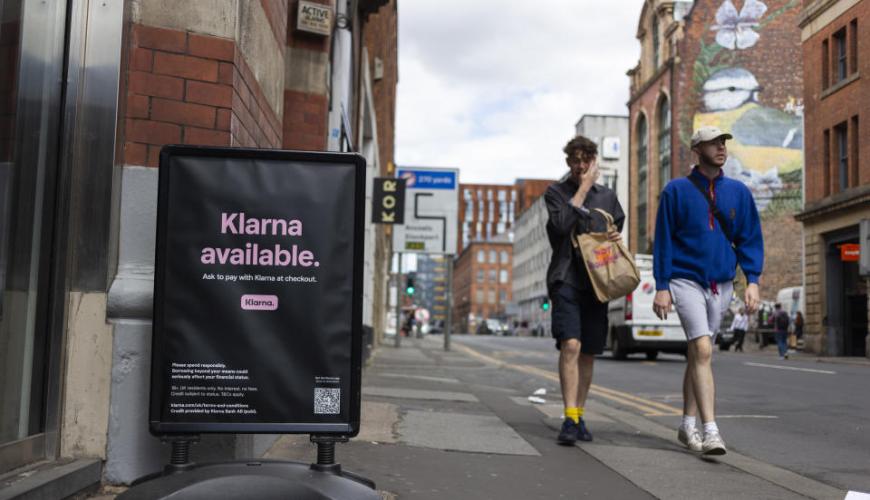Rising Use of 'Buy Now, Pay Later' Services for Essential Goods Could Exacerbate Consumer Debt
- 22 February 2024 2:01 AM

The rising use of 'Buy Now, Pay Later' (BNPL) services for essential everyday items may worsen the financial situation for Americans already burdened with debt. According to the Federal Reserve Bank of New York, consumers considered financially unstable are almost three times more likely to use these services more than five times a year, as compared to those with financial stability.
Financially unstable individuals, defined here as those with credit scores under 620 or who have experienced a loan default or credit application denial in the past year, seem to increasingly depend on these short-term installment loans for small, unexpected expenses. This increase aligns with a time when many Americans are battling hefty credit card debt and stubborn inflation. It also raises concerns about the lack of regulation around BNPL and potential for financially strained individuals to overshoot their means.
BNPL services, or point-of-sale installment loans, are essentially short-term loans with fixed payments. Usually offered by retailers at checkout, consumers can use BNPL apps to cover the cost without the immediate financial impact. Unlike credit cards, these apps often offer zero-interest loans as long as payments are made in small, regular instalments. However, they can present a risk, with longer-term loans carrying Annual Percentage Rates (APR) as high as 36%.
Unfortunately, some major BNPL providers do not currently share their data with national credit bureaus such as Equifax, Experian, or TransUnion. This lack of transparency could lead to consumers overextending their credit and landing themselves deeper in debt. To date, only Affirm reports some repayment activity and loans to Experian.
BNPL services have seen a surge in popularity over recent years. With costs of essential items, including groceries, rising by 25% since 2020, the reliance on these services indicates worsening personal finances amongst consumers. A survey of 3,100 consumers by PYMENTS found that some 56% of respondents used BNPL for grocery shopping in summer 2023.
Many financially vulnerable consumers are using BNPL more than five times a year, often for smaller purchases they might otherwise struggle to afford. More worrying is the increasing use of BNPL for bigger purchases upwards of $1,750 by those with more stable finances.
These findings suggest that while BNPL might offer a more attractive alternative to payday loans for small purchases, its unchecked growth could lead to normalization of debt accumulation, especially amongst younger people. This could potentially create more risk for consumers if they struggle to pay back their loans or want to dispute a fee with fewer protections.
Analysts have also raised concerns about how BNPL collects customer data to offer tailored offerings, making it challenging for consumers to stop using their services.
Irrespective of age, those using the BNPL services the most are those under financial strain, typically between the ages of 30 and 50. For these consumers, added pressure comes from the looming resumption of federal student loan repayments.
A study by the New York Federal Reserve has pointed out that consumers often spend about 20% more when using BNPL services, indicating the potential for overspending. They urge caution as BNPL could lead consumers to undertake more debt than they can handle, with many already struggling to manage their existing bills and payments.
